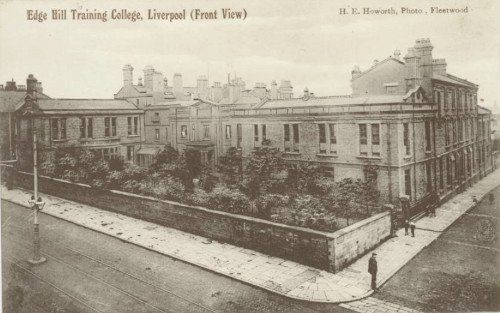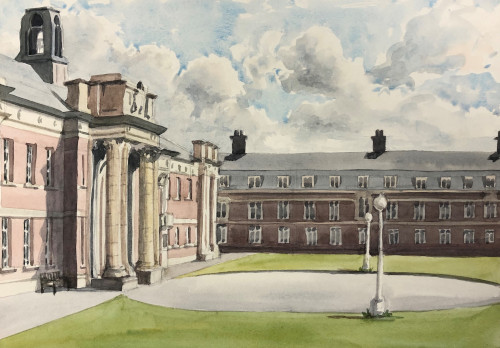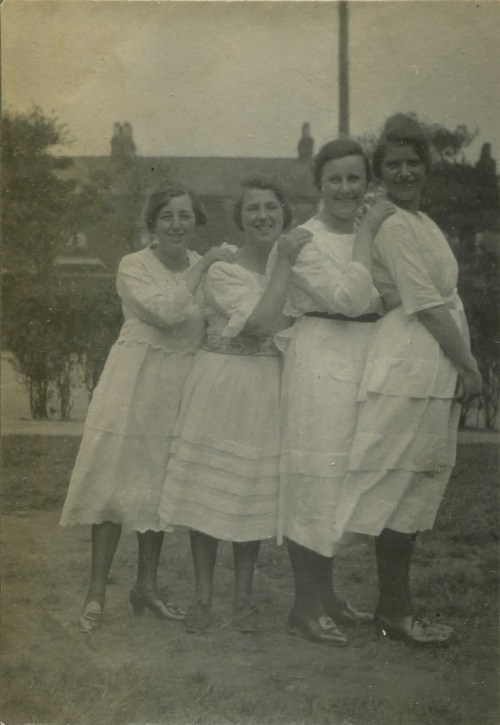Archives Hub feature for June 2022
Edge Hill University’s history dates back to the 1880s when a committee was formed in 1882 to establish a teacher training college for women in Liverpool. Students would be instructed “in the Christian Religion upon a Scriptural but undenominational basis.”
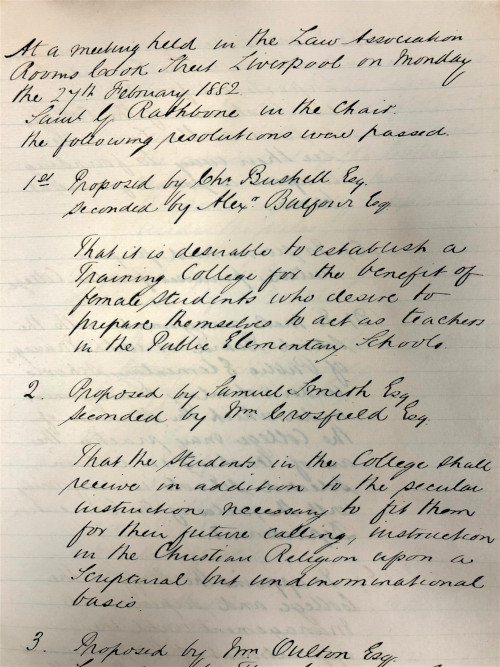
The College was opened on Durning Road in the Edge Hill district of Liverpool in January 1885, with just 41 students. Sarah Jane Yelf was appointed as the College’s first Principal, with the intention of producing ‘a superior class of Elementary School Mistresses’. Sarah Jane Hale took over as principal in 1890 and the institution began a gradual expansion. Miss Hale died in 1920 and by the end of her tenure the College had trained 2,071 girls, of whom 213 were Head Mistresses, 178 First Assistants, and 30 science mistresses. Miss Hale’s successor in 1920 was Eva Marie Smith and she would continue with the ambitious expansion of the College, with it by now having a firmly established reputation for excellence.
Miss Smith and her colleagues had begun to feel that the Durning Road site was not suitable for the growing student and staff population (as well as facing regular problems with the upkeep of the site. In 1925, Edge Hill was placed under the control of Lancashire County Council who would provide a new building for the college, preserving the original name, history and reputation. A site in Ormskirk was chosen and the foundation stone of the new building was laid in 1931, before opening in October 1933.
During the Second World War, the College was evacuated to Bingley Training College while the campus served as a military hospital. The original Durning Road premises were destroyed in a German bombing raid on 28 November 1940, killing 166 people – the worst single incident in the Liverpool Blitz as regards loss of life.
The gradual expansion of the Ormskirk campus resumed after the War and, in 1959, the first male students were welcomed to the College. During the 1960s courses were expanded and diversified, with a rapidly developing range of degree courses on offer.
Over the next decades, the institution would maintain its reputation for excellence in teacher training while also steadily expanding a range of successful degree courses in other areas. This acceleration of curriculum, infrastructure and institutional development has continued to the present day, with the University Title awarded in 2006.
The Edge Hill University archives offer a wealth of potential areas for research. The collections have vast potential for the history of teacher training, women’s education and the changing lives of women in the late 19th and early 20th centuries. The expansion of Edge Hill in recent decades means its history has a great deal to tell us about the development of higher education in Britain as well as the changing experiences of those who studied and were employed here. Each milestone changed and broadened the horizons of what Edge Hill University is today.
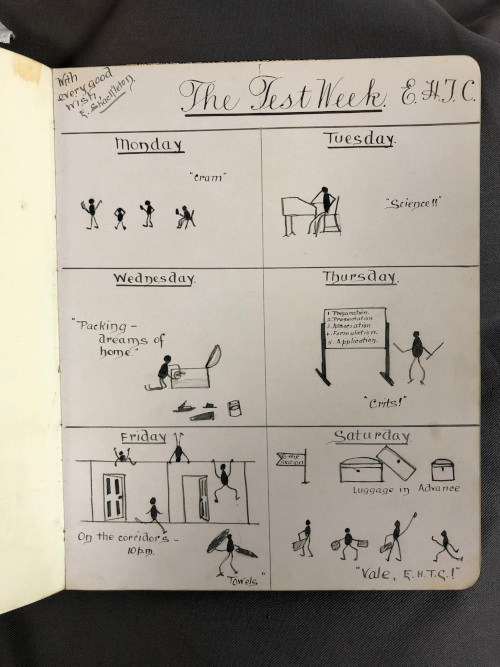
It would be fantastic to see this collection being used more for research. It has already proven a fantastic resource for historians of women’s suffrage, with a number of Edge Hill’s alumni having been active in the fight for equality and some becoming particularly well-known figures such as the barrister and women’s rights campaigner, Helena Normanton and the socialist, feminist and human rights campaigner, Ethel Snowden. Discussions around women’s suffrage and equality were often covered and reported on in the annual Edge Hill College magazines – a wonderfully rich series of documents that reveal much about the cultural shifts in the lives of women during the late 19th and early 20th centuries.
The dedicated cataloguing of the archive only began in late 2019, so there is a huge amount of material yet to be catalogued, as well as a constant flow of new accessions arriving at the archive, so researchers are encouraged to contact us if they cannot find things that they might expect to find listed, would like to find out more about the collections or have a specific enquiry we might be able to support them with. Get in touch and discover an archive collection that is overflowing with untapped potential!
Dan Copley
Edge Hill University Archivist
Related
Edge Hill University and Predecessors, c. 1882-c. 2019
Edge Hill University Archives on the Archives Hub
All images copyright Edge Hill University Archives. Reproduced with the kind permission of the copyright holders.

